Sometimes, it’s the simple moments in life that make all the difference—and slice of life anime is here to remind us of that. These shows don’t need epic battles or dramatic plots to capture our hearts. Instead, they focus on the beauty of everyday life—the small, often overlooked moments that bring joy, warmth, and a sense of connection. Whether it’s sharing a quiet afternoon with friends, enjoying a cup of tea, or experiencing the highs and lows of personal growth, slice of life anime celebrates what truly matters.
In this list, we’re diving into some of the most heartwarming slice of life anime that will have you appreciating the little things in life—because sometimes, it’s the simplest moments that leave the biggest impact. Get ready for a cozy, feel-good ride! 🌸😊
Skip and Loafer
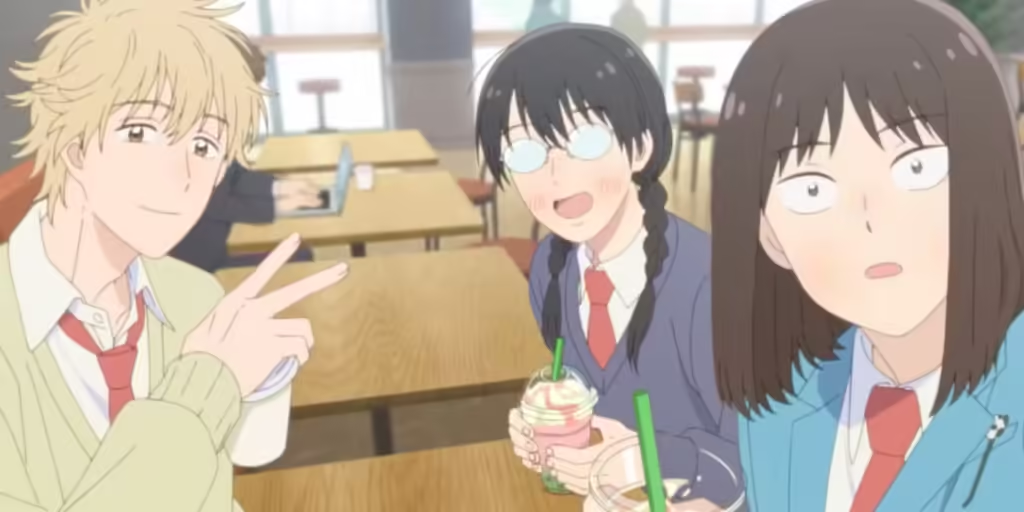
Skip and Loafer—a soft, radiant gem that gently taps you on the shoulder and reminds you to slow down and breathe. It doesn’t shout to be heard. It smiles. It follows Mitsumi, a bright-eyed countryside girl chasing big dreams in the city, and Shima, the laid-back classmate whose quiet charm hides more than he lets on. Together, they show us that life isn’t about dramatic twists or epic stakes—it’s about showing up, getting awkward, laughing through mistakes, and growing little by little.
Skip and Loafer captures the kind of moments we often overlook—eating lunch with friends, getting lost in the school hallway, the awkward dance of figuring out who you are and who you want to become. It’s funny, but never mean. Heartfelt, but never heavy. There’s an honesty in how it portrays teenage life, not as a glittering highlight reel, but as a series of small, uncertain steps that somehow feel enormous.
Watching this anime feels like walking home in the sunset with no rush, no noise—just that peaceful feeling of knowing today mattered, even if nothing big happened.
Because those are the moments that shape us.
And Skip and Loafer lets us fall in love with every one of them.
Sweetness and Lightning
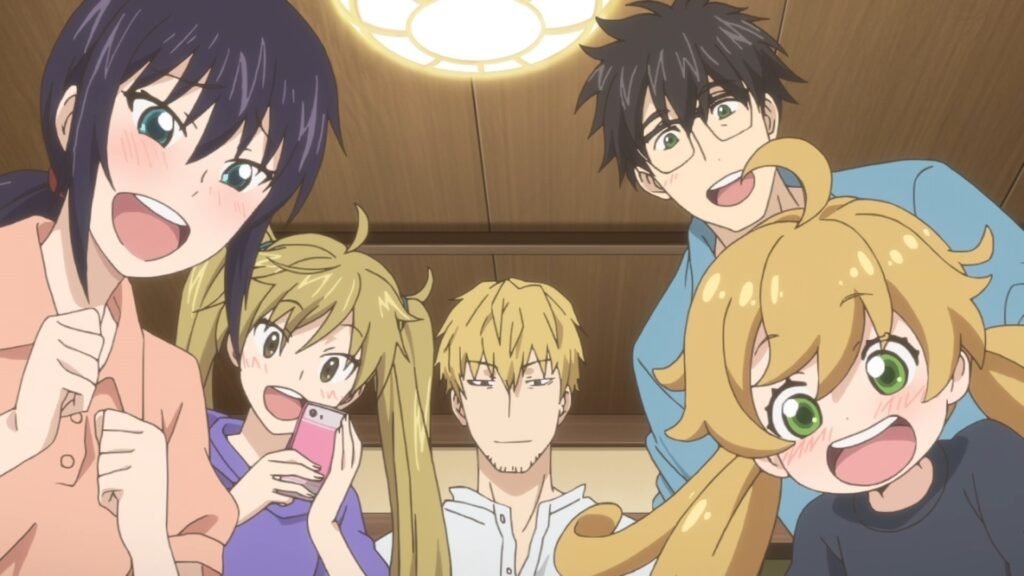
Sweetness and Lightning—a story that doesn’t need action or drama to move you. It just needs a father, a daughter, and a homemade meal. After the passing of his wife, single dad Kohei struggles to balance work and parenthood. His daughter Tsumugi, full of wonder and spark, doesn’t ask for much—just time, love, and the taste of a home-cooked dinner. What follows is a gentle journey through food, family, and healing.
There’s nothing extravagant in Sweetness and Lightning, and that’s exactly what makes it beautiful. It’s about chopping vegetables side by side. Laughing at a meal that didn’t turn out perfect. Learning to cook not just to fill stomachs, but to fill the empty spaces grief leaves behind. Every episode is a quiet celebration of love—the kind you show through effort, presence, and warmth.
This anime reminds us that the little things—sharing a bowl of soup, hearing your child’s laugh, cooking together with clumsy hands—are the moments that matter most.
And somehow, by the end, your heart feels a little fuller, too.
Doughnuts Under a Crescent Moon
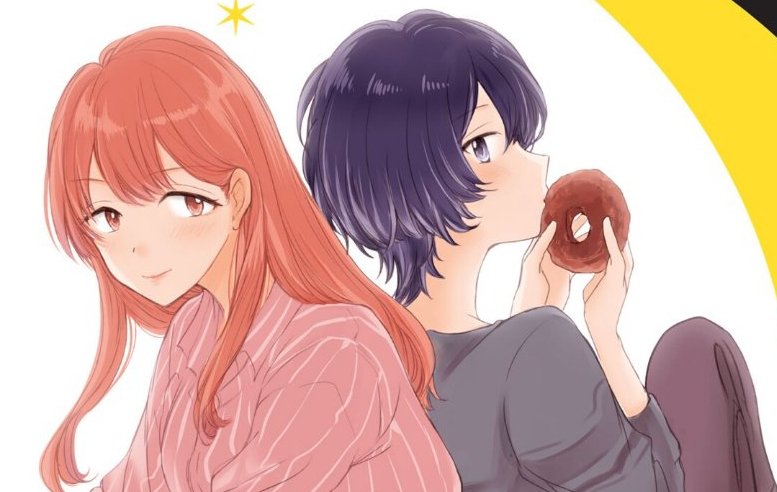
Doughnuts Under a Crescent Moon—a soft, slow-burning story that wraps around your heart like a quiet confession. It’s not flashy. It doesn’t scream. It simply exists—in glances, pauses, and the subtle ache of wanting to be understood. At its core, it follows Uno and Sato, two women navigating adulthood, loneliness, and the unspoken pressure to “fit in” when they feel anything but.
The beauty of this anime isn’t in grand gestures—it’s in shared lunches, shy smiles, and the slow realization that maybe, just maybe, you don’t need to perform love to deserve it. That maybe being yourself, awkward and imperfect, is enough. It gently unpacks what it means to feel broken, to reach out despite fear, and to slowly rebuild your sense of self with someone who sees you—truly sees you—without judgment.
Doughnuts Under a Crescent Moon makes you fall in love with the in-between moments: a walk home under city lights, a conversation that lingers just a second too long, the warmth of being accepted when you’re still learning to accept yourself.
It’s soft. It’s real. It’s healing.
Dancnigai
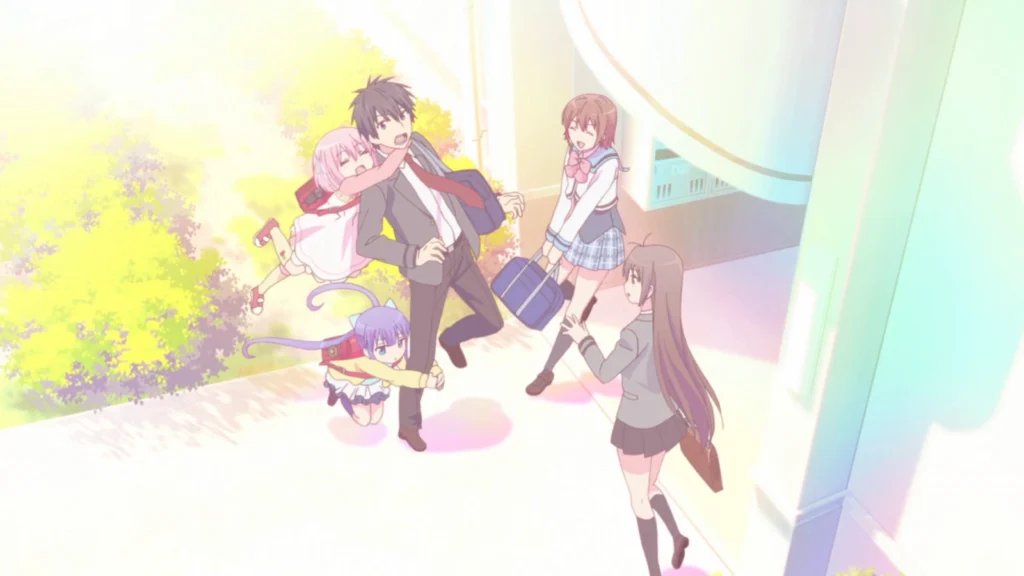
Danchigai, a little slice of joy that doesn’t need a full episode to leave a smile on your face. In just a few minutes per entry, it captures the everyday chaos of living with four sisters—each with their own quirks, moods, and ways of showing love. Haruki, the only boy in the house, may pretend to be annoyed by their antics, but you can see it—he treasures them more than he lets on.
What makes Danchigai special is how it embraces the tiny, blink-and-you-miss-it moments: sibling bickering that turns into laughter, a surprise snack left on your desk, the quiet understanding that even if no big event happens today, it still mattered because you shared it with the people you love. It’s proof that family isn’t perfect—it’s messy, loud, and sometimes exhausting—but it’s also full of heart.
Watching Danchigai feels like peeking into a warm home on a rainy day. You smile, you chuckle, and by the end, you’re reminded that even the smallest moments—when spent with the right people—are worth
Sakura-San Wants To Be Noticed
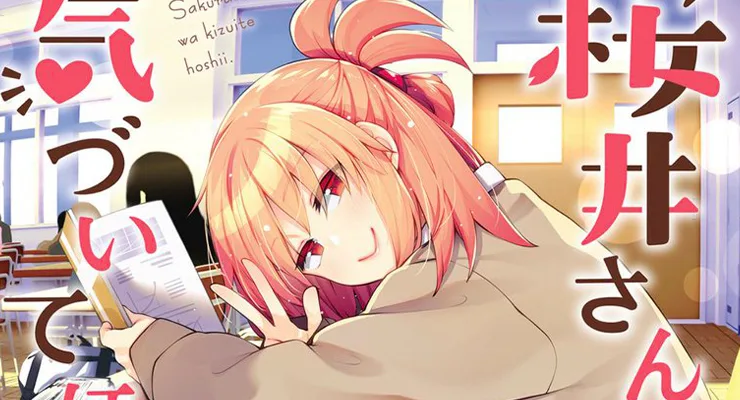
Sakurai-san Wants to Be Noticed—a quiet whisper of a love story that feels like sunlight peeking through a window. It follows Sakurai, a sweet and shy high school girl whose every glance, every subtle move, is a silent wish: “Please, notice me.” But this isn’t the loud, dramatic kind of romance. It’s the soft kind—the kind where hearts race over shared eye contact and unspoken feelings bloom in hallway strolls and desk-side glances.
What makes this anime so heartwarming is its dedication to the little things: the gentle push of courage it takes to speak up, the blush that won’t go away, the way a tiny act of kindness can stay with you all day. Sakurai’s attempts to be seen are relatable in the most endearing way, because who hasn’t hoped that someone would just… notice them?
This is the magic of slice-of-life. No huge plot twists. No over-the-top declarations. Just slow, steady steps toward connection.
Orange
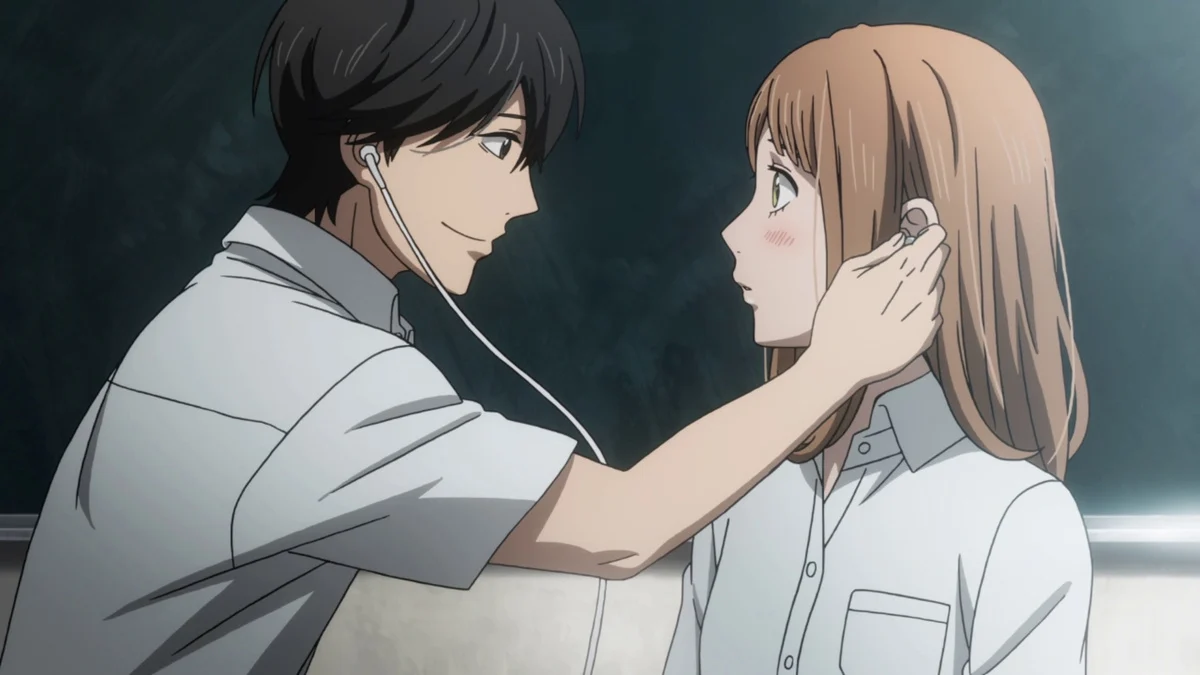
Orange—a series that starts like a sweet high school drama, but quietly reveals itself to be something much more profound. It’s a story about friendship, regret, and second chances. When Naho receives a letter from her future self, urging her to protect a boy named Kakeru, it sounds like science fiction—but what follows is raw emotion, not fantasy. It’s a story of small choices that ripple into life-changing consequences.
Orange makes you appreciate the power of the “little things.” A text message you almost didn’t send. An invite to lunch. A kind word spoken at just the right moment. It reminds you that even the simplest actions can be lifelines to someone silently drowning. It’s tender. It’s tragic. But more than anything, it’s hopeful.
There’s a quiet strength in watching this friend group rally around someone who doesn’t even know he needs saving. Orange doesn’t just tug at your heart—it holds it gently, reminding you that time is precious, and love is found in moments we often take for granted.
Sometimes, appreciating the little things means realizing how big they truly are.
Hyouka
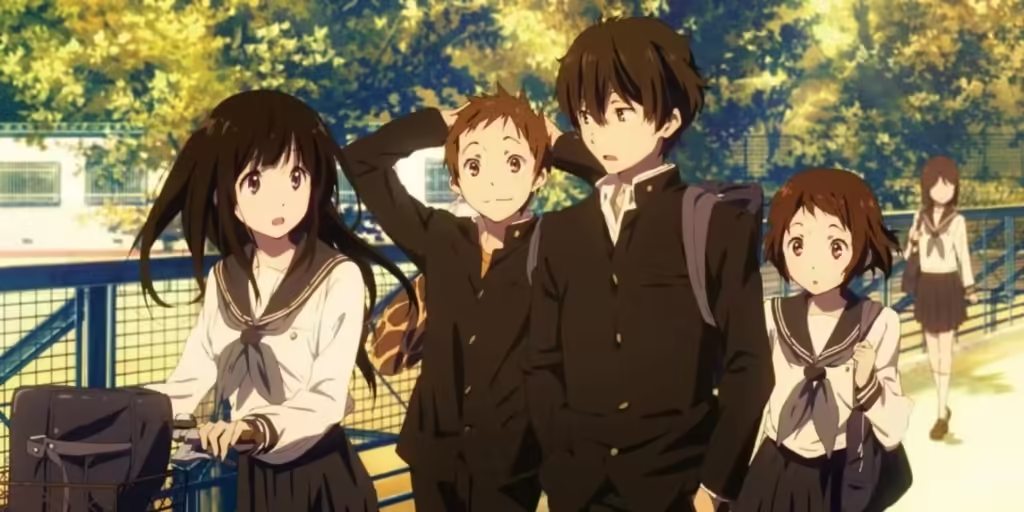
Hyouka—an anime that turns the mundane into a mystery, and the ordinary into something almost poetic. At the center of it all is Oreki Houtarou, a boy who lives by one motto: “If I don’t have to do it, I won’t. If I have to, I’ll do it quickly.” But then comes Chitanda, with her wide eyes and relentless curiosity, dragging him into a world where even the smallest question becomes an adventure.
What makes Hyouka so special is that it doesn’t deal in world-shaking events—it dives deep into the quiet corners of everyday life. A forgotten school legend. A cryptic message in a book. A lingering question about a past festival. And through these tiny mysteries, it reveals something bigger: that our lives are shaped by the things we usually overlook.
The series whispers, rather than shouts. It’s about noticing the glint of sunlight on a desk. The sound of leaves in the wind. The flutter in your chest when someone makes you care more than you meant to. Hyouka teaches you that beauty lives in stillness, and that sometimes, the most meaningful discoveries come not from looking harder—but from simply choosing to look at all.
Blue Spring Ride
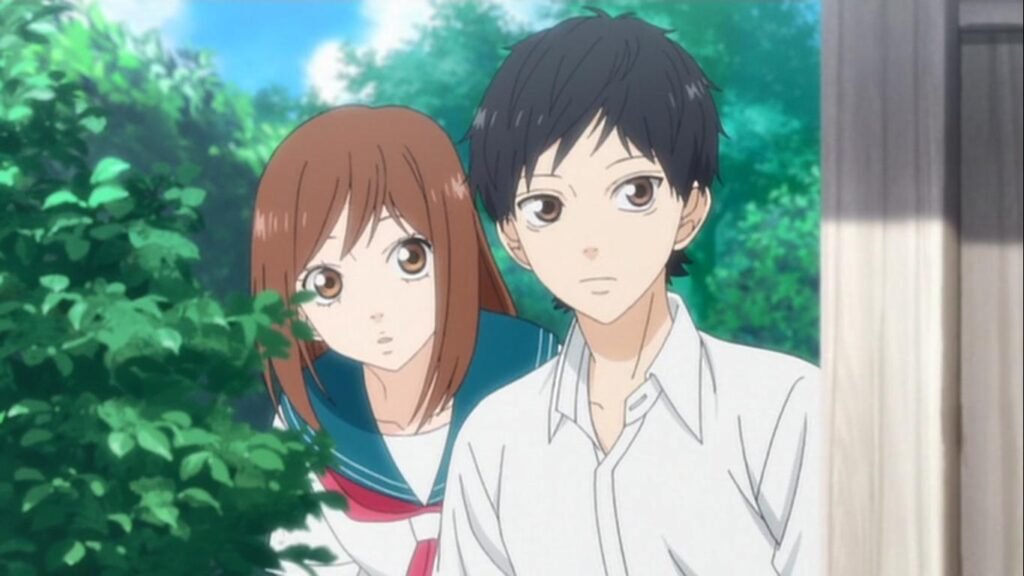
Blue Spring Ride—a bittersweet breeze of youth, love, and second chances. It tells the story of Futaba and Kou, two people who were once close in middle school but drifted apart after life—and tragedy—changed them. When they meet again in high school, they’re different. Colder. Guarded. But underneath the layers, something soft and familiar still lingers.
Blue Spring Ride doesn’t rush. It walks beside you. It shows the messy, honest beauty of trying to reconnect—not just with another person, but with yourself. Futaba wrestles with the need to fit in while staying true to who she is. Kou struggles to carry grief that no one else can see. Their story unfolds in lunch breaks, stolen glances, awkward silences, and conversations that don’t say everything but mean everything.
This anime gently reminds you that growing up isn’t always about big, dramatic changes. Sometimes, it’s just learning how to open your heart again, even when it hurts. And that’s where Blue Spring Ride shines—in the delicate spaces between hurt and healing, between distance and closeness.
It makes you cherish every skipped heartbeat, every unspoken word…
And the rare moments when someone sees you—even the parts you’re still learning to love.
Sound of Life
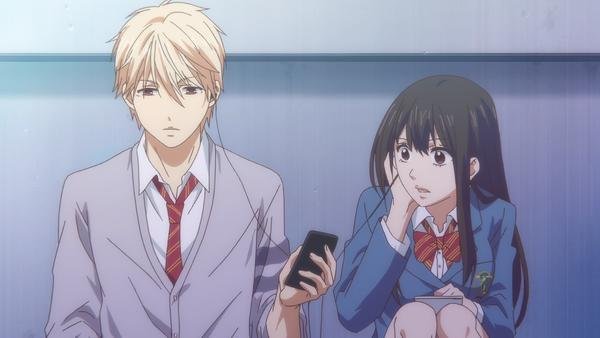
Sound! Euphonium—a series that doesn’t just show music, it feels like it. It follows Kumiko and her high school concert band as they reach for something big—something they can’t quite name at first. But what begins as just playing notes turns into a journey of heart, discipline, and self-discovery. It’s not about winning competitions—it’s about the moments in between. The late-night practices. The hesitation before a solo. The tear-filled silence after a missed note.
Sound! Euphonium thrives on the things we don’t always say. On the way someone glances at their instrument before performing. On the pride that sneaks in after hours of frustration. On the subtle shift in tone when feelings begin to change—between friends, rivals, and maybe something more. This anime sings quietly, yet powerfully, about growing pains and personal stakes that feel small from the outside, but massive from within.
It teaches us that passion isn’t always loud. Sometimes, it’s quiet dedication, practiced daily. And that’s where its magic lies—turning every breath, every chord, every heartbeat… into a note in the song of life.
ReLIFE
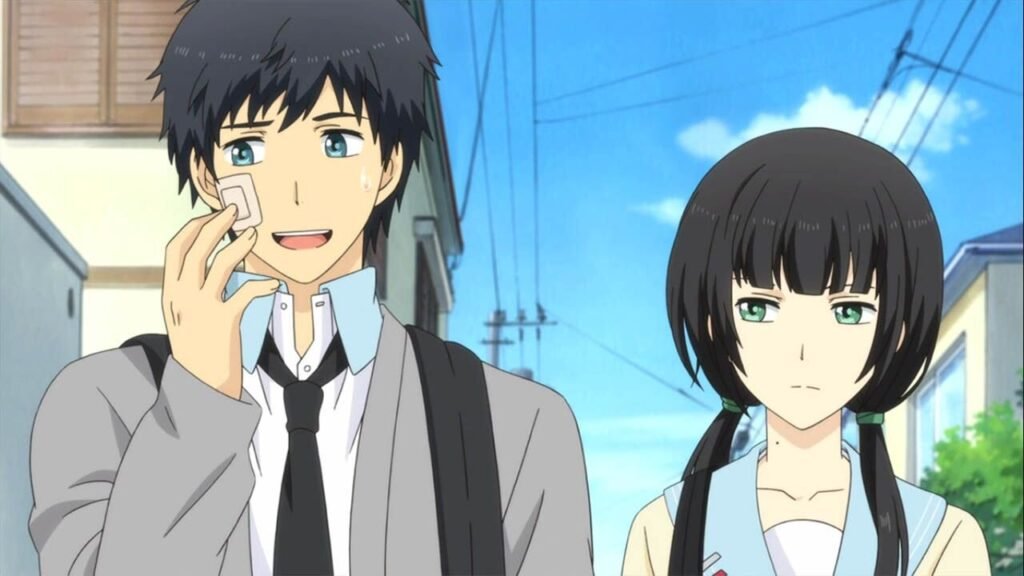
ReLIFE—a story that takes the weight of adulthood and folds it back into the fragile simplicity of high school. Arata Kaizaki, a 27-year-old stuck in life, is given a second chance—not through fantasy or time travel, but by literally reliving his teenage days. It sounds lighthearted, almost fun. But what unfolds is something far more moving.
Because ReLIFE isn’t just about youth—it’s about regret, pressure, healing, and starting over when the world tells you it’s already too late. Through exams, hallway chats, group projects, and budding friendships, Arata begins to confront the parts of himself he buried long ago. Every smile, every awkward moment, every shared lunch holds more weight than it first appears. And slowly, gently, it becomes clear—sometimes the smallest memories are the ones that save us.
ReLIFE teaches us that it’s never too late to grow. That second chances often come disguised as ordinary days. And that appreciating life doesn’t require a miracle—just the courage to try again.
March Comes In Like A Lion
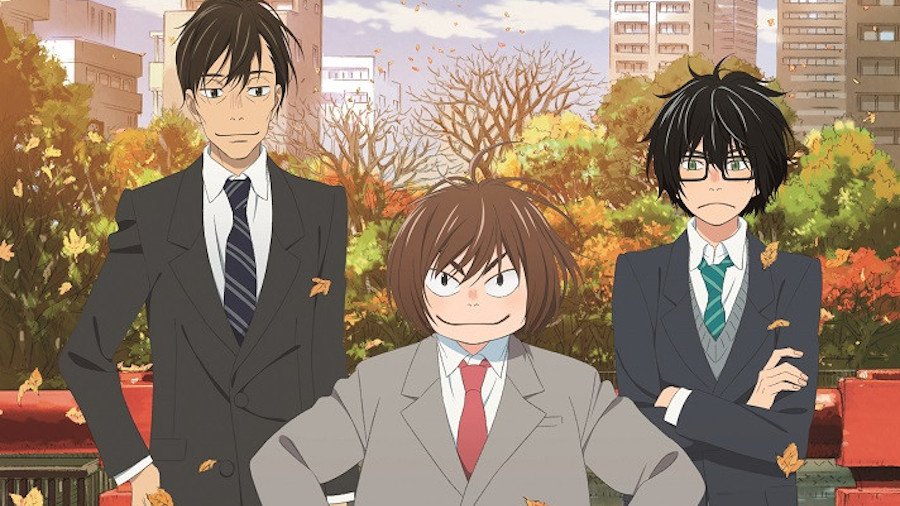
March Comes in Like a Lion—a story that feels less like watching anime and more like reading someone’s soul. It follows Rei Kiriyama, a teenage shogi prodigy carrying more weight than any boy his age should. At first, his world is quiet—too quiet. It’s filled with loneliness, sleepless nights, and the heavy silence of unresolved grief. But slowly, through the kindness of others, something begins to shift.
The Kawamoto sisters—gentle, chaotic, loving—don’t rescue him with grand gestures. They do it with food. With laughter. With soft moments that say, “You can rest here.” And that’s the heart of March Comes in Like a Lion. It’s about healing in small, unnoticed ways. A shared meal. A walk home in the snow. A quiet tear that finally falls because someone cared enough to ask.
This anime shows that life doesn’t always move fast. Sometimes, it’s painful. Sometimes, it’s stagnant. But even in those dark spaces, the smallest moments—a smile, a warm kotatsu, a match played with meaning—can carry unimaginable weight.
And in those moments, we’re reminded: you don’t need to be fixed to be loved.
You just need to be seen.
The Pet Girl of Sakurasou
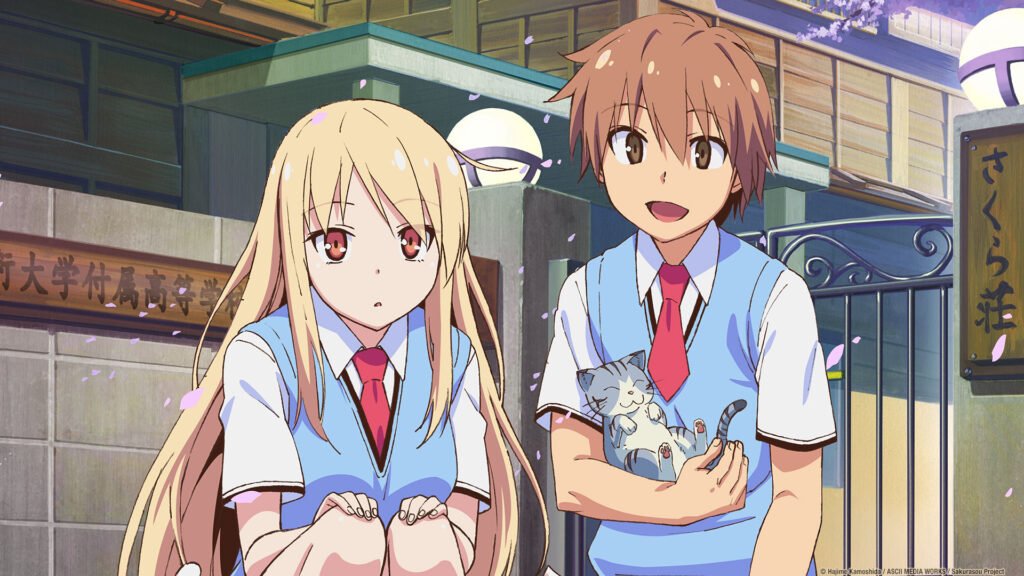
The Pet Girl of Sakurasou—a series that wraps chaos, love, and heartbreak into a place that feels like home. Sakurasou isn’t your average dorm. It’s messy, unpredictable, and full of people chasing dreams so big they almost burst. And in the middle of it all is Sorata, a regular guy just trying to figure life out, and Mashiro, a genius artist with the innocence of a child and the mind of a master.
But The Pet Girl of Sakurasou isn’t about romance alone. It’s about failure. About what it means to feel “ordinary” when you’re surrounded by brilliance. It’s about late-night tears, quiet frustration, and the bittersweetness of watching someone you care about shine brighter than you ever thought you could. And still—you stay. You support. You grow.
Every small moment in this series hits deep: a hesitant compliment, a shared umbrella, the courage to say “I’m not okay.” It reminds us that life isn’t just about reaching your dreams—it’s about the people who walk with you while you chase them. Even when they hurt you. Even when they leave.
The Pet Girl of Sakurasou makes you feel every second of growing up—the loneliness, the beauty, the hope. And when it’s over, you’re left sitting in the quiet, appreciating the little things you used to overlook.
Fruits Basket

Fruits Basket—a story that feels like a hug wrapped in heartbreak. At first, it might seem like a quirky tale about a girl named Tohru Honda and a mysterious family cursed to transform into animals of the Chinese zodiac. But as the story unfolds, you realize it’s not about the curse—it’s about healing. About choosing kindness when the world hasn’t been kind to you.
Tohru is soft-spoken and gentle, but her strength is immeasurable. She sees the pain others try to hide, and she meets it—not with pity—but with open arms. Every member of the Sohma family carries wounds they believe no one could understand. Yet through shared meals, quiet conversations, and moments of vulnerability, walls begin to crumble. And hearts begin to open.
What Fruits Basket teaches better than most is that everyone is fighting a battle you can’t see. That a smile can be a lifeline. That love doesn’t have to be loud to be powerful. It’s found in the smallest things—a cleaned room, a cooked meal, a hand reaching out in silence.
This isn’t just a story about family or love—it’s a story about learning you deserve to be loved, even when you feel broken.
And that message? It stays with you, long after the final cherry blossom falls.
komi can't comunicate
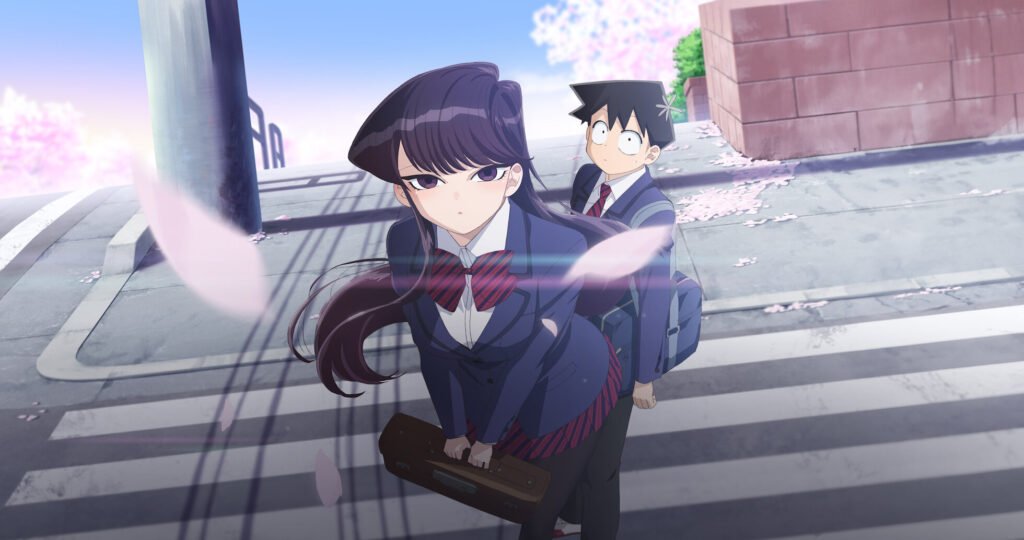
Komi Can’t Communicate—a story that captures the tender ache of wanting to connect but not knowing how. Komi is beautiful, admired, and seemingly perfect… but behind her silence lies a storm of anxiety and self-doubt. She’s not distant by choice—she just doesn’t know how to speak the words in her heart. And yet, all she wants is one thing: to make friends.
What makes this series shine isn’t the comedy or the exaggerated reactions—it’s the quiet victories. The small notes she writes to say “thank you.” The moments she gathers all her courage just to say someone’s name. And then there’s Tadano, the one person who doesn’t expect her to be anything more than herself. His calm, steady presence reminds us all that sometimes, just sitting beside someone without pressuring them to speak is the loudest kind of love.
Komi Can’t Communicate is a celebration of gentle progress. It reminds us that being seen—truly seen—can be life-changing. That friendships aren’t built in a day, but in the countless little moments of kindness, patience, and quiet understanding.
It’s not just about learning to talk.
It’s about learning that your voice—however soft—is worth hearing.






